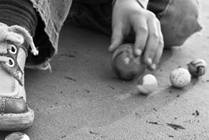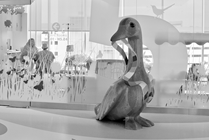Search Results
Viewing: 621-630 of 1469 | All

Condition
Sports Medicine: Apophysitis of the 5th Metatarsal Iselin’s Disease
Iselin’s disease is pain and swelling of the growth plate (apophysis) of the 5th metatarsal.

Specialty
Orthodontic Treatment Program
Facial differences can impact a child’s physical, social and emotional development. The Orthodontic Treatment Program offers a compassionate approach to comprehensive care, provided by experts who understand the dental development of children as they grow.
Distal Radius Buckle (Torus) Fracture
A distal radius buckle (torus) fracture causes one side of the bone to bend but does not actually break through the bone. It is an incomplete fracture that normally heals within 1 month.

Condition
Turf Toe
Turf toe is an injury to the capsule and ligaments of the joint at the base of the big (first) toe. Pain is usually worst on the bottom of the foot.
Article
Check-ups for Teens in Out-of-Home Placement
Teens in foster or kinship care have unique needs. They are learning life skills like how to make decisions on their own. Teens also have many concerns about their health, relationships with friends, and privacy.
Article
Behavior Support Reinforcement System
One way to motivate your child to stick with positive behaviors is with a reinforcement system. This is also known as the sticker system. This system gives your child an incentive to increase appropriate behavior and decrease problem behaviors.
Respiratory Syncytial Virus (RSV) Resources
Respiratory Syncytial Virus (RSV) can cause serious illness in young children, especially infants. To help providers, patients, and families stay informed, Nationwide Children’s Hospital offers a collection of trusted resources on RSV prevention, symptoms, and treatment.

Condition
Apnea
In this Helping Hand™ document, we discuss apnea, which is a pause in breathing that lasts 20 seconds or longer for full-term infants. There are many reasons why a baby may have periods of apnea including brain immaturity, neurological issues, heart disease, gastrointestinal issues and others.

Specialty
Trauma Program
As one of the largest pediatric ACS verified Level 1 trauma centers in the nation, we are finding the best outcome for every patient we treat. Our Trauma Program ensures expert evaluation, treatment and follow-up for all injured children.
Article
Vitamin A and Eye Health
Your child needs vitamin A to be healthy. It plays a key role in their vision and how it develops. Vitamin A deficiency is when you don’t have enough vitamin A. This can lead to permanent blindness. However, vision loss from vitamin A deficiency can be reversed if treated quickly.
